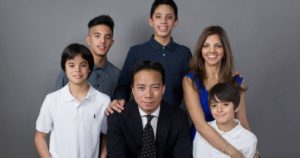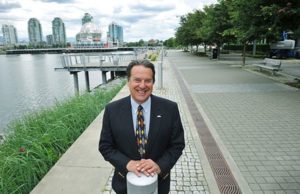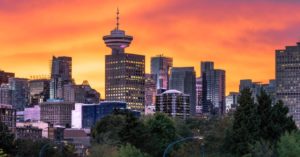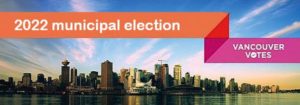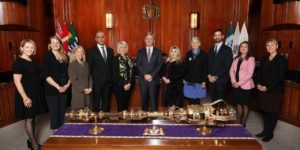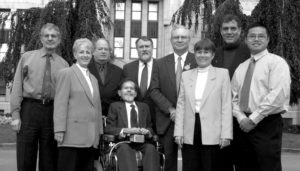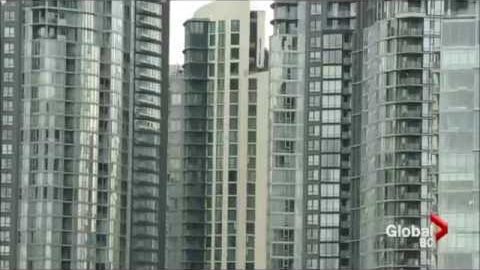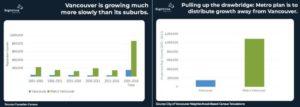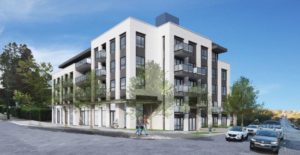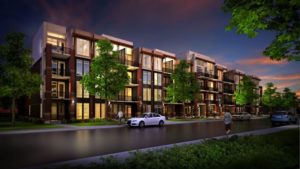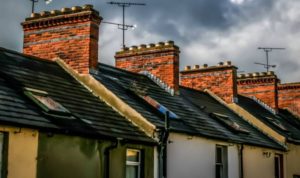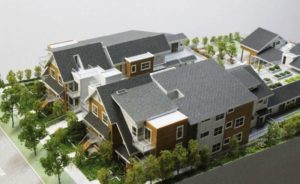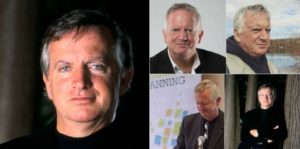 Colleen Hardwick, TEAM Vancouver, running against incumbent Mayor, Independent, Kennedy Stewart
Colleen Hardwick, TEAM Vancouver, running against incumbent Mayor, Independent, Kennedy Stewart
In the next month or so, current and sitting independent Vancouver City Councillor Colleen Hardwick — who is at present seeking the Mayoral nomination with the recently-formed Vancouver municipal political party team … for a livable vancouver — will, in all likelihood, announce at the end of the nascent civic party’s upcoming AGM that she has won the TEAM Mayoral nomination, and will officially announce her bid to become Vancouver’s next Mayor, on Saturday, October 15, 2022.
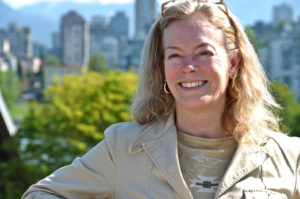
Colleen Hardwick’s platform?
The platform has occurred as a function of a series of policy meetings TEAM conducted on October 24, 2021. VanRamblings would understand that Ms. Hardwick and the TEAM candidates who will soon be announced will prioritize …
- A return to neighbourhood democracy, where residents in the 22 neighbourhoods across Vancouver will be empowered to formulate policy affecting their neighbourhood, and will be listened to when decisions are taken at Vancouver City Hall;
- A move away from podium and high-rise tower-driven plinth construction, in favour of medium-and-low-rise, largely wood frame townhouse, affordable apartment and rowhouse construction, along arterials, and along some residential streets;
- At Park Board, a re-prioritization of elected Park Board Commissioners as stewards of our parks and recreation system, while working to develop policy to strengthen our community centres, and developing new public pools and parks;
- A commitment to sustainable fiscal management at City Hall that will reduce annual property tax increases, while prioritizing the delivery of core city services;
- Arts & culture, transportation, reconciliation, public safety and security, finance and administration, economic development, climate emergency, and School Board policies that were decided on at the October 24, 2021 TEAM Policy Conference, and set to be announced at the upcoming team … for a livable vancouver AGM.
The team … for a livable vancouver AGM will take place either before year’s end, or early in the New Year / first quarter of 2022.
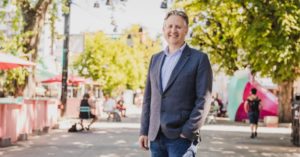
According to a Research Co. poll published in The Vancouver Sun on June 23rd, early pre-election polling has incumbent Mayor Kennedy Stewart with an almost insurmountable lead, and a 49% approval rating among the Vancouver electorate.
Note should be made that the Research Co. poll was commissioned by the Vancouver and District Labour Council , which represents more than 100 Vancouver-based unions. The Labour Council endorsed Kennedy Stewart as their Mayoral candidate in the 2018 election, and has announced their intention to do so again in the lead-up to the 2022 Vancouver municipal election.
Not everyone is thrilled with Kennedy Stewart, though.
Mike Howell, longtime and well-respected Vancouver civic affairs columnist, in a column published in Vancouver is Awesome, posted the question, Why is a former Vancouver councillor bringing developers to meet the mayor?
“Former Vancouver City Councillor Raymond Louie has been advocating for some of the city’s high-profile developers and joining them in a series of private meetings at City Hall with Mayor Kennedy Stewart. Louie participated in seven meetings in February and March in the Mayor’s office, which included Ian Gillespie of Westbank Projects Corp., Bruno and Peter Wall of Wall Financial Corporation, and Brian McCauley of Concert Properties.
Louie, who served 16 years on Council with COPE and Vision Vancouver before retiring (prior to the 2018 election), also met three times by himself with Stewart, according to the mayor’s monthly calendars posted on the city’s website. The frequency of Louie’s visits to City Hall are in contrast to a major plank of Stewart’s election campaign in which he called for new conflict of interest and lobbying rules for elected officials and senior staff members.”
Meanwhile, The Tyee’s Paul Willcocks took Stewart to task last year for his “painfully lame” response to police reform.
“There are 11 municipal police forces in B.C., including Vancouver … Stewart chairs the 9-member Vancouver Police Board, but he’s the only elected and publicly accountable member. The Police Act says Police Boards are responsible for determining the ‘priorities, goals and objectives of the municipal police department.’ But they are also required to “take into account the priorities, goals and objectives of the Council of the municipality.”
If Stewart and Vancouver’s Councillors agreed on measures to combat systemic racism — and shared them publicly — the Police Board would have to respond, or be held to account. That doesn’t take (a provincial government) review, as Kennedy Stewart suggested. No. It just takes leadership.”
VanRamblings believes Kennedy Stewart to be Vancouver’s worst, most inept Mayor since Jack Volrich was elected Mayor in the late 1970s.
Kennedy Stewart has proved throughout his term in office to be a feckless leader, given to whining about a “lack of support” from senior levels of government on the housing file, objectively the worst Mayor of any major Canadian city when it came to responding to the COVID crisis we’ve been living through over the past 20 months, and given to taking positions on issues that rather than serve the public interest, serves the plundering interests of Vancouver’s development community.
Two examples of how Kennedy Stewart serves the development community, rather than interests of all of us who call Vancouver home …
 Councillors reject Christine Boyle & Kennedy Stewart’s developer-friendly motion
Councillors reject Christine Boyle & Kennedy Stewart’s developer-friendly motion
On May 28th, Vancouver City Councillor Christine Boyle brought forward a controversial motion that would allow projects up to 12 storeys to be built across the city, sans public hearing and community input, a proposal Boyle had worked closely on with Mayor Kennedy Stewart before bringing it before Vancouver City Council.
Boyle and Stewart’s cynical proposal called on the City’s Planning Department to come up with suggestions that would allow 12-storey, so-called ‘social housing’ developments in areas designated for apartments, without the benefit of a public hearing that would allow neighbourhood resident comment. The following Vancouver neighbourhoods would have been impacted were Boyle’s and Stewart’s motion to pass: Fairview, Grandview-Woodland, Hastings-Sunrise, Kensington-Cedar Cottage, Kitsilano, Marpole, and Mount Pleasant.
The Coalition of Vancouver Neighbourhoods posted a statement online on May 16th in opposition to Boyle’s and Stewart’s motion.
“This will increase development pressure, increase rental inflation, gentrification, demovictions, and displacements for existing older more affordable rental buildings,” the coalition said. It noted that existing rents in older buildings “tend to be much lower than new rentals, sometimes even lower than typical subsidized social housing rents, while existing older units are also generally larger”.
The Coalition also reiterated its longstanding objection to the city’s definition of social housing that allows 70% of the units at market-rate rents, but counts entire projects as 100% social housing “when it is mostly market rents”.
“It’s the carrying on of the policies that were established during the Vision administration, and the staff who was in place then is still in place now, and is simply carrying on with these things,” Larry Benge of the Coalition said, “and unfortunately, staff is directing the way this Council is approaching housing policies.”
Boyle and Stewart’s motion offered a cynical sinecure to the development industry that would allow developers to designate an entire building as ‘social housing’, when in fact, 70% of such proposed units within a 12-storey tower would be made available at market rental rates (generally $2150 for a studio, $2575 for a 1-bedroom, $3100 for a 2-bedroom, $3722 for a 3-bedroom), with the remaining 30% of units available at 20% below the going market rates, rather than the much more affordable 20% below CMHC-determined median rental rate — resulting not only in unaffordable housing units for the vast majority of Vancouverites, but creating unnecessary, counter-productive land inflation across the city.
When the motion failed (miserably) — as well it ought to have — both Mayor Kennedy Stewart and Councillor Christine Boyle’s OneCity Vancouver municipal party sent out withering funding letters to their supporters, derisively calling out those who had voted against this ‘very important equity motion’.
Balderdash.
The bottom line, for the beleaguered citizens of Vancouver: the majority of Vancouver City Councillors saw through Boyle’s and Stewart’s cynical, developer-friendly ruse, voting against the Boyle/Stewart motion, voting in favour of democratic citizen engagement in the planning processes in our city’s neighbourhoods.

REJECTED | City of Vancouver Real Estate Department Plan for False Creek South
When the City of Vancouver’s Real Estate Department put forward a proposal to Vancouver City Council that would have laid waste to False Creek South, and turned this friendly, low-and-medium-rise townhouse and four-and-six storey apartment-style, and largely housing co-operative neighbourhood into a mirror image of the podium and high-rise tower-driven plinth False Creek North neighbourhood, Mayor Kennedy Stewart was first out of the gate to sing the praises of …
“The new False Creek South Plan”, Stewart wrote, “will add more than 4,600 new below-market and market rental, strata, and co-op homes, so thousands of more Vancouver residents can enjoy the benefit of these publicly owned lands. Great cities like ours can never stand still. We must always examine whether our city is meeting our needs, both for today and tomorrow.”
Too bad that the 171 articulate and informed speakers who appeared before Council to denounce the Plan were so moving Council unanimously rejected the Plan, preserving the heart of our city for generations to come. Notice how in the graphic below, Kennedy Stewart has ‘changed his mind’ on the appropriateness and efficacy of the City’s greed-driven plan for False Creek South.
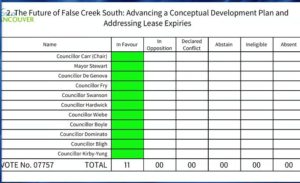 Kennedy Stewart’s last minute change of heart: rejects greedy False Creek South Plan
Kennedy Stewart’s last minute change of heart: rejects greedy False Creek South Plan
As might be expected, one of Kennedy Stewart’s main rivals for Mayor of Vancouver in 2022, the very bright and principled Mark Marissen, takes the Mayor to task for re-announcing and re-launching proposals already soundly rejected by Council. “This is not leadership,” writes Mr. Marissen.
Did the Mayor secure the votes he needs on council to implement this plan?
If not, why is he re-announcing something rejected by his council?
This is not leadership. (And it fails as a publicity stunt too.)
Vancouver deserves real leadership, for a change.#vanpoli https://t.co/1ivaGjFv6r
— Mark Marissen (@marissenmark) October 20, 2021
Seems that other of Vancouver citizens — you know, the ones that Research Co. didn’t call — are among the many who find Mayor Kennedy Stewart wanting, in the integrity and climate emergency departments …
To have a mayor cast the deciding vote against leadership on climate is emblematic of why we are in a climate emergency to begin with. Leaders need to lead. But it was not just a loss for climate action but also a loss for intellectual honesty in government.
— Andrea Reimer (she/her) (@andreareimer) October 7, 2021
After 9 months of work & 2 full days of hearings (in which the Mayor remained silent) Stewart voted by press release to kill a policy staff had worked hard on.
The Mayor has an obligation to lead, engage, and improve policy. He failed to do that last night. pic.twitter.com/QJZoUehAKq
— Mayor Ken Sim (@KenSimCity) October 7, 2021
Well, this unusual vote from Mayor Kennedy Stewart is certainly going to give everyone something to hash over. Left/progressives sure to be disappointed in the mayor, right-centres relieved he voted the way he did — but will they like him any better? One year to E-Day
— Frances Bula (@fabulavancouver) October 7, 2021
Make no mistake, Kennedy Stewart retaining power at Vancouver City Hall for a 2nd term will prove no easy task, for reasons other than you’ll find above. That issue, though, will be the topic of Thursday’s VanRamblings column.

